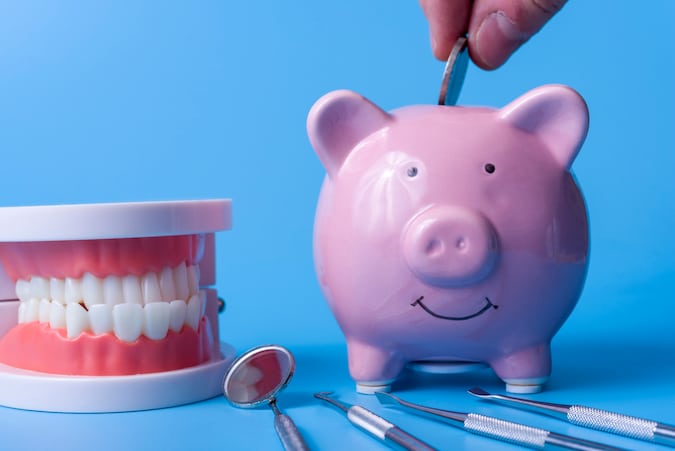
Dental Insurance for the Self-Employed: A Complete Guide

If you’re self-employed, choosing the right dental insurance can be daunting. This guide breaks down the best options and application steps to ensure your oral health is covered.
Dental insurance is essential for self-employed individuals to protect against high dental costs and ensure access to preventive care. Without employer-sponsored plans, self-employed workers must navigate the complexities of insurance on their own. This guide offers expert advice on choosing and applying for the best dental insurance plan tailored to your needs.
Key Takeaways:
- Understand the importance of dental insurance for self-employed individuals.
- Learn about different types of dental insurance plans, including DHMO, DPPO, and indemnity plans.
- Step-by-step guidance on applying for dental insurance.
- Insight into tax deductions for dental insurance premiums.
- FAQs about dental insurance for the self-employed.
Why Dental Insurance is Essential for Self-Employed Individuals

Dental insurance is a critical component of financial and health management for self-employed individuals. Without employer-sponsored coverage, dental insurance becomes a personal responsibility that can have significant impacts on both your finances and health.
Financial Protection Against High Dental Costs
The cost of dental procedures can be substantial. A routine cleaning might seem affordable, but unexpected procedures like root canals or crowns can quickly escalate, costing hundreds or even thousands of dollars. Dental insurance helps mitigate these costs by covering a portion of the expenses, thus protecting your finances1.
Importance of Preventive Care
Preventive care is often covered by dental insurance, ensuring that routine checkups, cleanings, and minor treatments are accessible without out-of-pocket costs. These services are vital in catching potential issues early, preventing them from becoming more severe and expensive problems2.
Potential for Significant Savings
Over time, the cost of maintaining dental insurance can be significantly less than the potential out-of-pocket costs for major dental work. Insurance plans often cover a substantial part of the cost for essential procedures, allowing you to maintain your health without financial stress3.
Types of Dental Insurance Plans for Self-Employed Individuals
Choosing the right dental insurance plan involves understanding the different types available and what each offers. Here’s a breakdown of the most common options.
Dental Health Maintenance Organization (DHMO) Plans
DHMO plans are typically the most affordable, offering lower premiums. These plans require you to choose a primary care dentist from a network, and you’ll need a referral to see specialists. While these plans are budget-friendly, they come with limitations, such as restricted provider networks and little to no coverage for out-of-network care4.
Dental Preferred Provider Organization (DPPO) Plans
DPPO plans provide greater flexibility in choosing dental care providers. While the premiums are higher than DHMO plans, they offer broader coverage, allowing you to see both in-network and out-of-network dentists. This flexibility comes at a cost, but it is a valuable option for those who want more control over their dental care choices5.
Dental Indemnity Insurance Plans
Indemnity plans offer the most freedom by allowing you to visit any dentist and receive reimbursement for a portion of the costs. These plans often have the highest premiums and out-of-pocket costs but are ideal for individuals who require extensive dental work and want the ability to choose their providers freely6.
Dental Discount Plans
While not traditional insurance, dental discount plans offer significant savings on dental services through a membership model. You pay an annual fee to receive discounts on various dental procedures. These plans are a good option for those who primarily need preventive care and are looking for a cost-effective solution7.
How to Choose the Right Dental Insurance Plan
Selecting the right dental insurance plan requires careful consideration of your dental needs, financial situation, and preferences.
Assessing Your Dental Needs
Begin by evaluating your dental history and anticipated future needs. If you have a history of dental issues or anticipate needing orthodontic work, opt for a plan with comprehensive coverage. On the other hand, if your needs are minimal, a basic plan might suffice. Consider your family’s dental health as well, especially if you have children who may need orthodontic care in the future8.
Comparing Dental Insurance Plans
When comparing plans, consider factors such as premiums, deductibles, and coverage limits. Evaluate the annual maximum— the total amount the plan will pay in a year— and check if there are waiting periods for certain services. Weigh these factors against your expected dental care needs to find the plan that offers the best value9.
Factors to Consider When Choosing a Provider
The provider’s network size is crucial, especially if you have a preferred dentist. Some plans restrict you to in-network providers, while others offer more flexibility. It’s also important to consider customer service, the ease of filing claims, and the provider’s reputation. Research customer reviews and ratings to gain insight into the provider’s service quality10.
The Application Process for Dental Insurance

Applying for dental insurance as a self-employed individual involves several steps, from researching plans to enrolling. Here’s how to navigate the process effectively.
Step-by-Step Guide to Applying for Dental Insurance
- Research and Compare Plans Online: Start by researching available plans on reputable sites like Healthcare.gov. Use comparison tools to evaluate different plans based on your specific needs.
- Understand the Application Forms and Necessary Documentation: Gather the required documentation, such as personal information, income details, and dental history, before filling out the application.
- Selecting and Enrolling in a Plan: Once you’ve chosen a plan, follow the enrollment instructions carefully. Pay attention to details like coverage start dates and any waiting periods.
- Tips for Ensuring Smooth Enrollment and Coverage Activation: Double-check all information before submitting your application. After enrolling, confirm your coverage activation with the provider and keep track of any follow-up communications11.
Common Challenges in the Application Process and How to Overcome Them
The application process can be complex, especially when dealing with insurance jargon. Take the time to understand the terms and conditions. If you encounter delays in coverage activation, contact your provider immediately. Keeping detailed records of all communications can help resolve any issues that arise12.
Tax Implications of Dental Insurance for the Self-Employed
Dental insurance premiums for self-employed individuals can often be deducted as a business expense, providing valuable tax savings.
Understanding Tax Deductions for Dental Insurance Premiums
Self-employed individuals can typically deduct dental insurance premiums on their taxes, reducing their taxable income. The deduction applies if the insurance covers you, your spouse, and your dependents. To claim the deduction, report it on Schedule C (Form 1040) when filing your taxes13.
How to Claim Dental Insurance as a Business Expense
To maximize your tax benefits, keep detailed records of your premium payments. Consult a tax professional to ensure you’re following IRS guidelines and making the most of available deductions14.
Final Thoughts
Dental insurance is a critical part of managing your health and finances as a self-employed individual. By understanding the different types of plans, assessing your needs, and navigating the application process, you can find coverage that suits both your budget and your health requirements. Remember, regular dental care is not just about maintaining your smile— it’s an investment in your overall well-being.
Frequently Asked Questions
Can dental insurance premiums be deducted on taxes?
Yes, self-employed individuals can often deduct dental insurance premiums as a business expense. Consult with a tax professional to ensure you meet the eligibility criteria and properly document your expenses.
What is the best type of dental insurance for a self-employed individual?
The best type of dental insurance depends on your specific needs. For flexibility and a wide range of provider choices, a DPPO plan may be ideal. If budget is a priority, consider a DHMO plan.
How does dental insurance affect my overall healthcare costs?
Dental insurance can significantly reduce out-of-pocket expenses for both routine and major dental care, helping to manage your overall healthcare costs more effectively.
Sources:
- eHealth. Dental Insurance for Self Employed Individuals. eHealth.com.
- Spirit Dental & Vision. Self-Employed Dental Insurance. SpiritDental.com.
- Aflac. Dental Insurance for the Self-Employed. Aflac.com.




